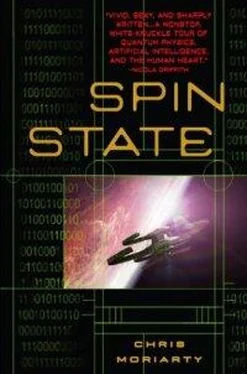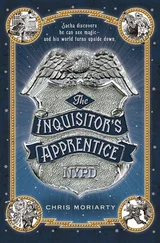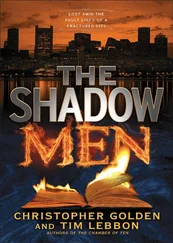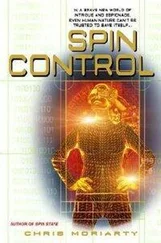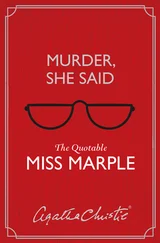Li caught her ship in a daze, too numb to care where she was going, or what Nguyen would have waiting for her when she got there. She clung to the guy ropes of a half-ton flat of emergency rations as the ship lumbered out of port and watched Compson’s World slip away from her for the last time through the cargo bay’s narrow viewport.
The ship cast off and drifted a little before its maneuvering engines stuttered into life. The station’s belly loomed above her, slipped sternward, and was replaced by stars and darkness. The solar arrays brushed by like wings, their frozen joints crusted with eight days’ worth of unthawed condensation ice. Then they were out in open space, and she could look back and see it all spread out below her.
The station was crippled, dying. The Stirling engines had shut down in the first crisis, and once the massive interlocking rings stopped spinning against each other it was only a matter of time until the living and working spokes faded into flat, cold, weightless darkness. A third of the outer ring was still lit up and functioning. The rest was dark already, the shadowed side of a jeweled carnival mask.
They were being evicted, politely but firmly. Compson’s World and the skies above it no longer belonged to them.
Li blew on the cold viruflex until it frosted, then pressed her forehead against it. Her eyes felt hot and dry. She kept thinking she should do something, but there was nothing to do, nothing anyone needed her for. And there would be weeks, months of this nothing before they reached Alba and what was left of her life started up again.
She should care more about it than she did—should be able to muster curiosity, if nothing else, about whether she would return home to a new assignment or a court-martial or worse. But what was the point of thinking that way? You cared, or you didn’t care. The rest was mere survival.
‹Reset›
She shook her head irritably, prodding malfunctioning wetware back into silence.
‹4280000pF›
She sighed and rubbed her temples. A pair of skinny brown legs appeared in her peripheral vision. Dusty. Barefooted.
Hyacinthe?
She tried to focus on the vision. Lost it. Then something flashed pale on the edge of sight, and she looked, and she could just make him out, faintly, as if he weren’t quite there. But the eyes were there. And couldn’t she feel him hacking the ship’s net, pirating its VR programs. Or was she just fooling herself?
For God’s sake, say something! The thought ripped out of her like flesh being torn away.
Sorry. I’m a little shaky. But it’s me this time. Most of me, anyway . He climbed onto the platform, very carefully, holding on with both hands, and sat beside her.
She felt something come alive in her chest, testing the wind, opening strong wings. She took a deep breath and realized it was the first time in days she hadn’t felt that weight on her chest. He filled up her eyes. She couldn’t bear to look at him. She turned without speaking and looked out the viewport toward the dying station. “Funny how it still looks more or less okay from the outside,” she said. “I wonder if they’ll be able to salvage anything when they come back.”
“I don’t think they’re coming back. They may come back to fight, but even then… I don’t think they can face it.”
“What about the AIs?”
“We’ll be back. We have to come back. This is our future. Or one of our possible futures.”
“What was it like down there?”
“It’s what Sharifi said: a chance to look into the shuffle. Everything is possible, and everything that’s possible is . It was wonderful. Terrifying. I almost forgot to come back.”
Li felt a flare of anger shoot through her. He could have come back anytime? Days ago? Hadn’t he even thought about what Nguyen would think? What Bella and the rest of them would think? What she would think?
You know I came as soon as I could .
The thought brushed along the edges of her mind, soft and tickling. Asking for forgiveness without quite asking. Butterfly kisses , she thought with a flash of child’s memory. But when she fished for the memory, she couldn’t get it back, couldn’t tell whether it was hers or Cohen’s. A shiver went through her at the thought that she could confuse the two. Then the fear drifted into… something. Something she could live with, even if she didn’t understand it yet.
“Why did you come back?” she asked.
“You promised to think about something. I wanted to know what you decided.”
She couldn’t feel him, couldn’t read him the way she had during those hours in the mine. But he had to know. How could he touch her, how could he look at her without knowing?
“I told you,” she said.
“Feeling something doesn’t mean you can follow through on it.”
“No,” she said. “It doesn’t, does it?”
He had drawn back from her a little as they spoke. Now he reached out and touched her hand and looked into her eyes. “What do you want now , Catherine?”
She looked back at him, feeling the warmth and the pull of him, the something in his smile that lived beyond and below words, that she no longer had to pin down or put a name to. The image of a rose took shape in her mind. A real rose, a little hurt in its spines, a little rot in its redness. A rose and its thorns.
“Everything.” She smiled. “All of it.”
Readers who follow what Lee Smolin has called the spectator sport of quantum physics will recognize the long shadows cast in this story by the theories of John Stuart Bell, Charles Bennett, David Deutsch, Hugh Everett, Chris Isham, Roger Penrose, John Smolin, Lee Smolin, John Archibald Wheeler, and others. The professional literature on quantum information theory, quantum gravity, spinfoam, the Many-Worlds interpretation of quantum mechanics and associated concepts is, of course, vast. What follows is a brief list of books and articles that were particularly helpful during the writing of Spin State .
These sources range from popular introductions to professional literature. I hesitate to steer readers toward one end or another of the spectrum; there are many concepts (quantum-teleportation comes to mind) for which the clearest and simplest explanation really is in the professional literature. For incorrigible mathophobes, however, I have marked equation-free texts with an asterisk (*).
Quantum Physics Generally
John Stuart Bell. Speakable and Unspeakable in Quantum Mechanics . Cambridge: Cambridge University Press, 1987.
M. Bell, K. Gottfried, M. Veltman, eds. John S. Bell on the Foundations of Quantum Mechanics . Singapore: World Scientific Publishing Co., 2001.
*Jeremy Bernstein. Quantum Profiles . Princeton, New Jersey: Princeton University Press, 1991.
*Barbara Lovett Cline. The Questioners: Physicists and the Quantum Theory . New York: Crowell, 1965.
*Robert P. Crease and Charles C. Mann. The Second Creation: Makers of the Revolution in Twentieth-Century Physics . New Jersey: Rutgers University Press, 1986.
Ian Duck, E. C. G. Sudarshan. 100 Years of Planck’s Quantum . Singapore: World Scientific Publishing Co., 2000.
David K. Ferry. Quantum Mechanics: An Introduction for Device Physicists and Electrical Engineers, 2nd Ed . Bristol: Institute of Physics Publishing, 2001.
*Richard P. Feynman. QED: The Strange Theory of Light and Matter . Princeton, New Jersey: Princeton University Press, 1985.
*Richard P. Feynman, The Character of Physical Law . Cambridge, MA: MIT Press, 1965.
A. P. French, P. J. Kennedy, eds. Niels Bohr, A Centenary Volume . Cambridge, MA: Harvard University Press, 1985.
Читать дальше
